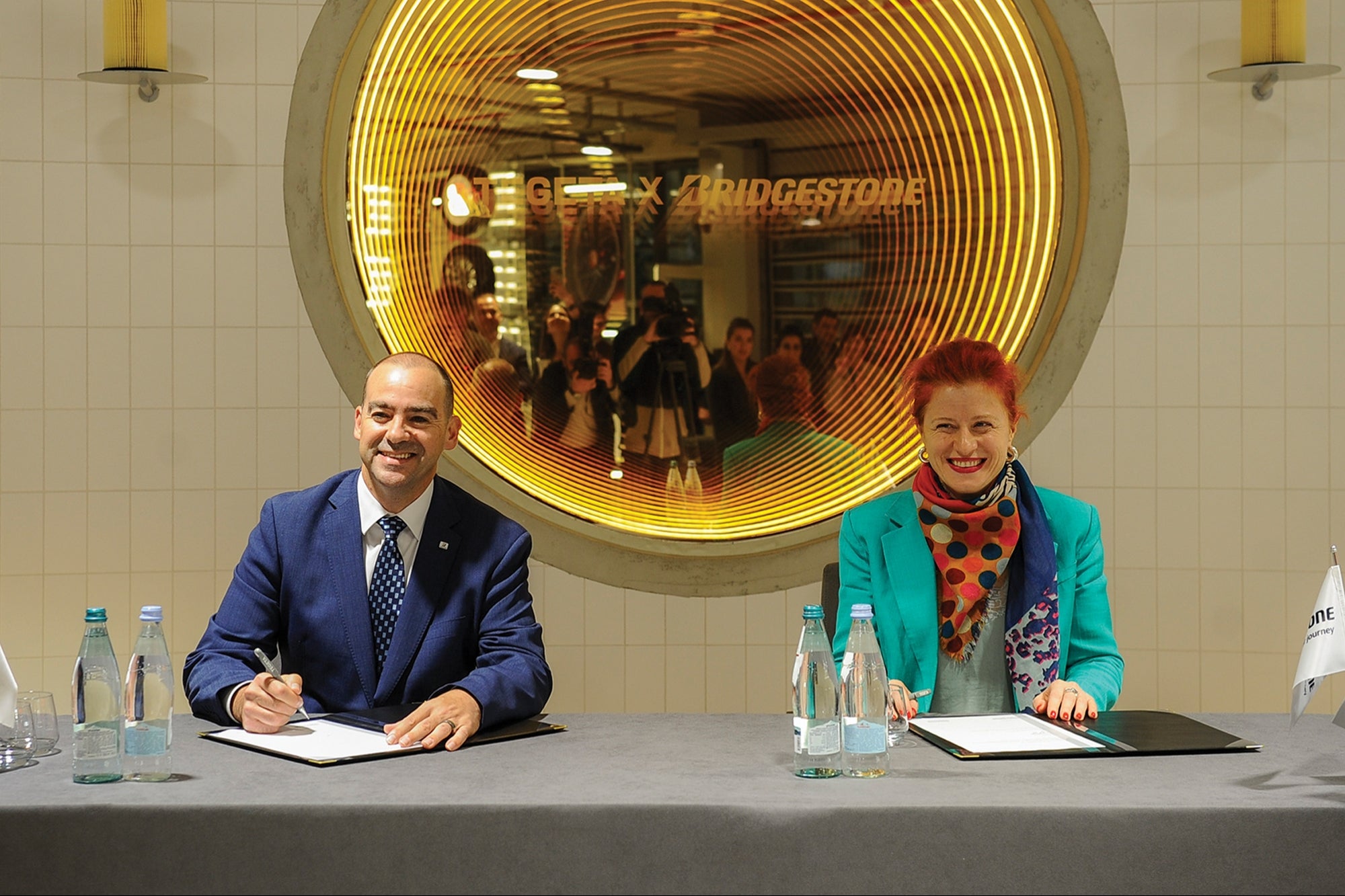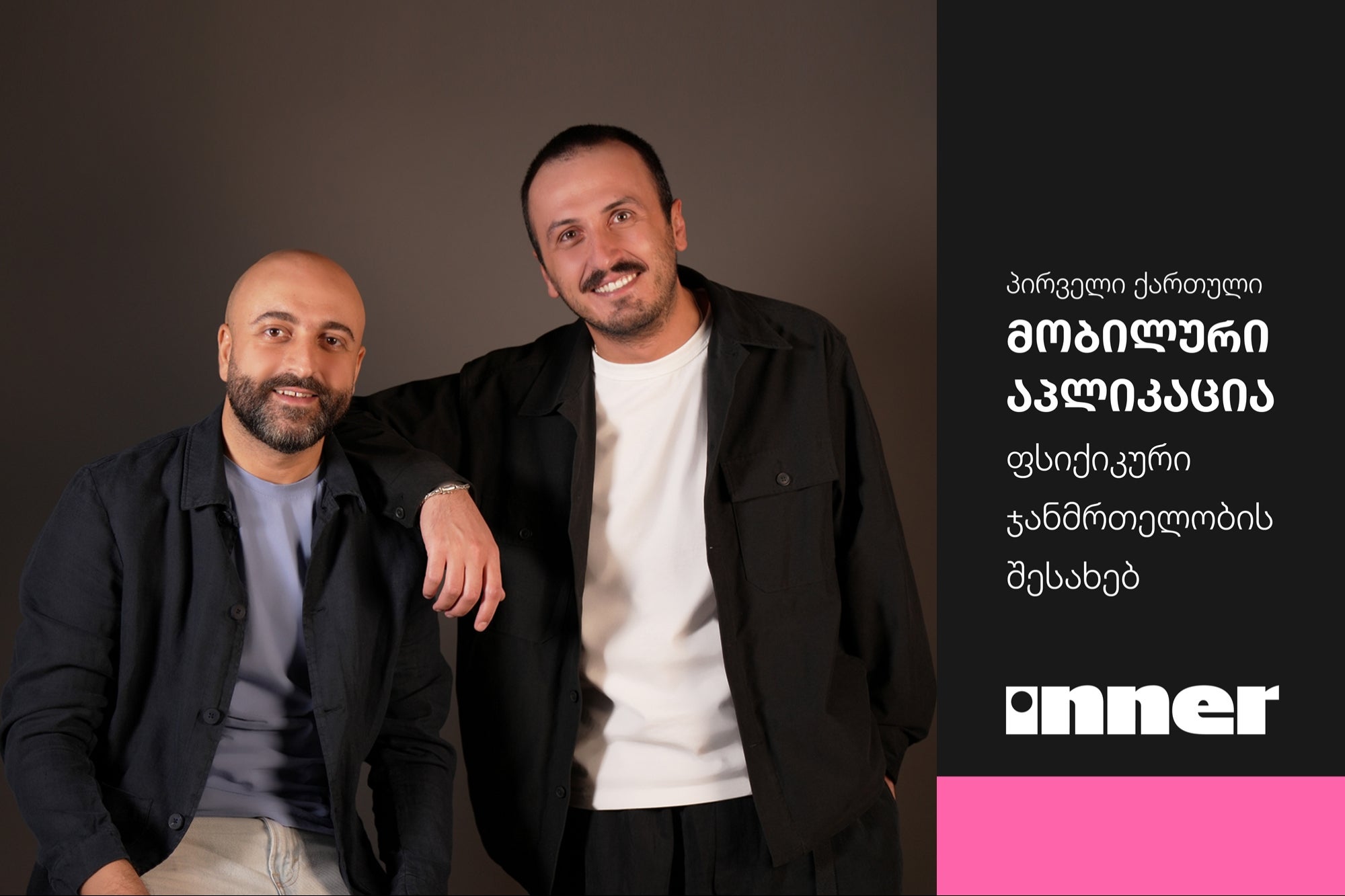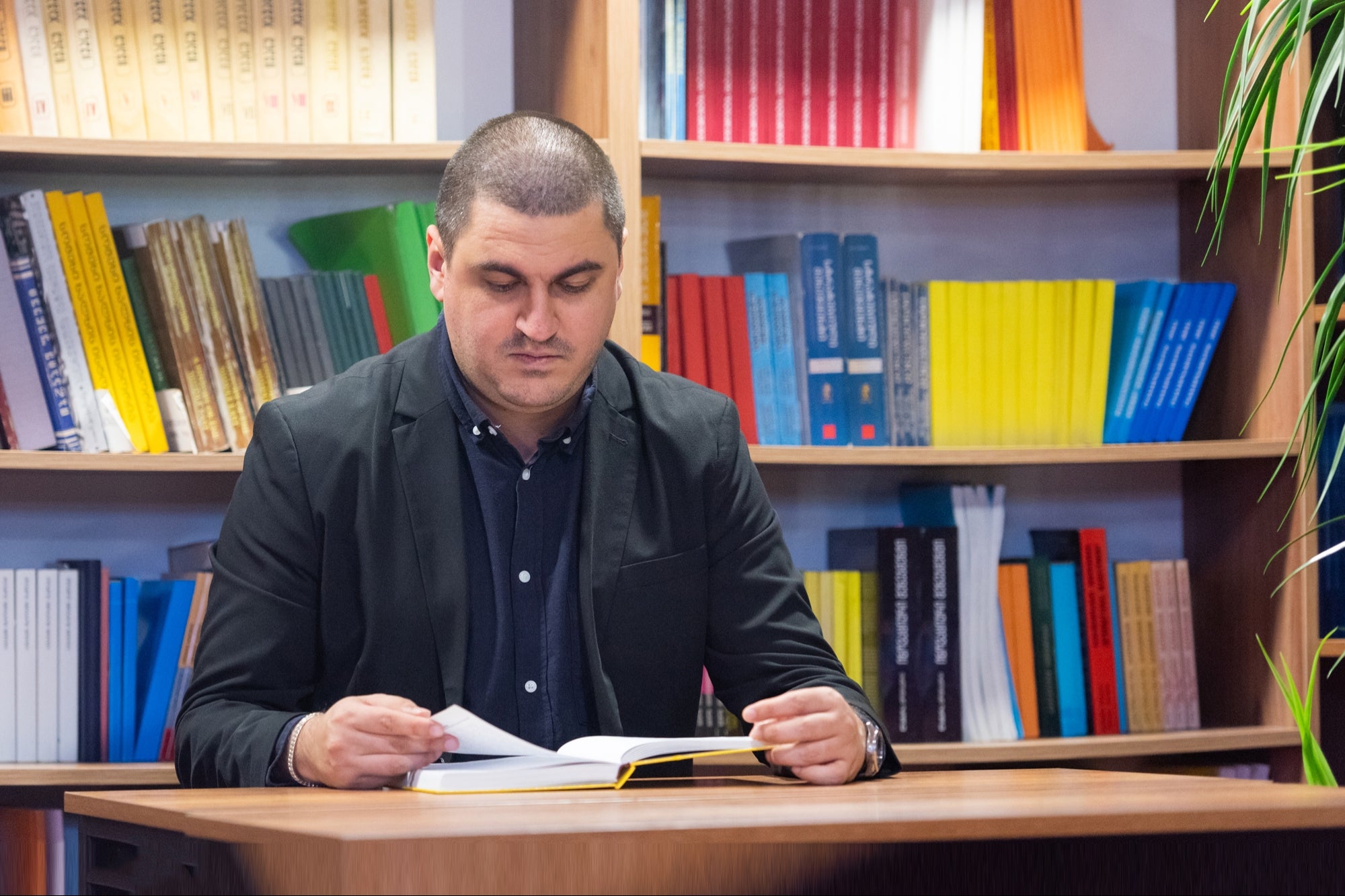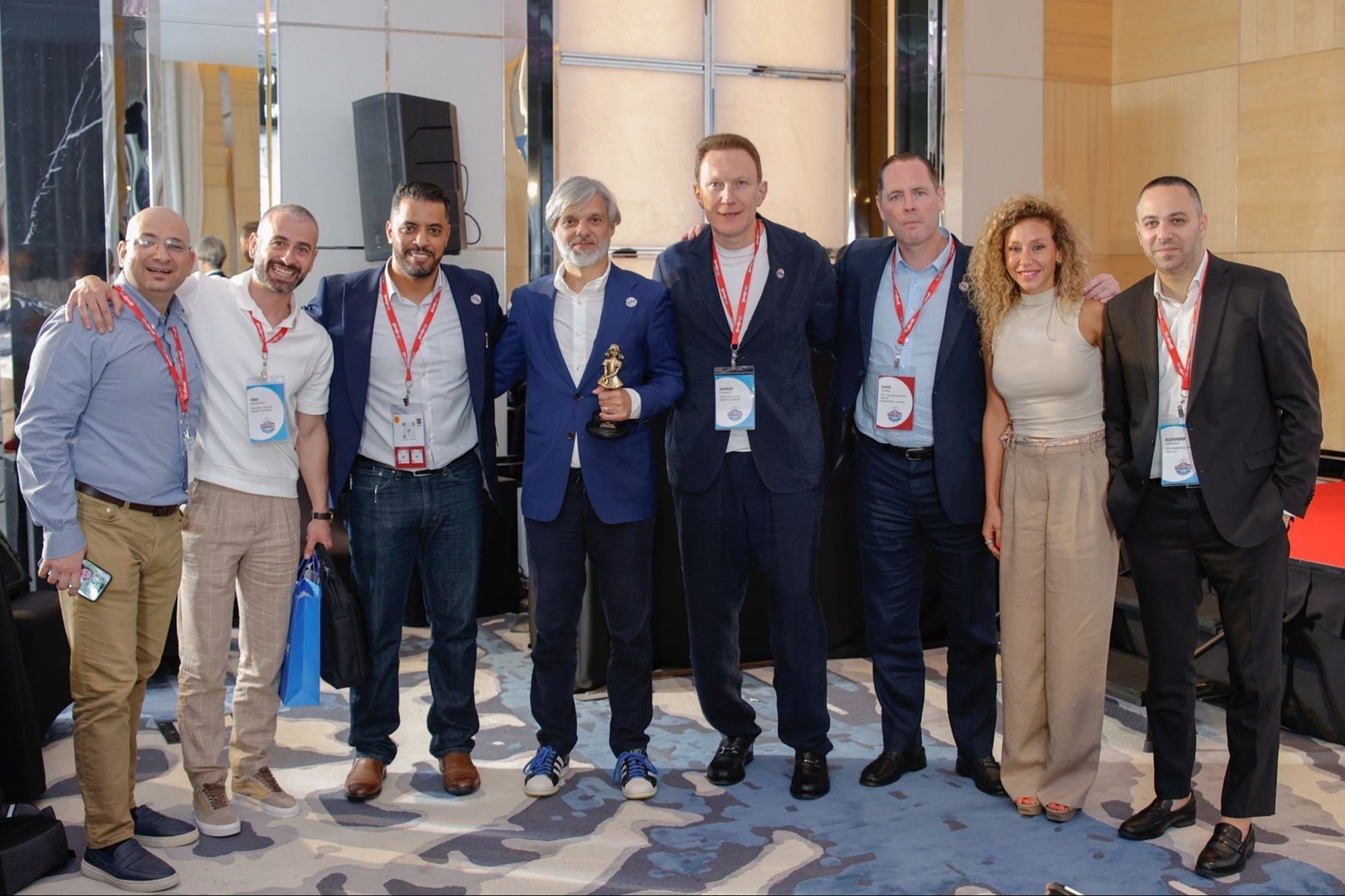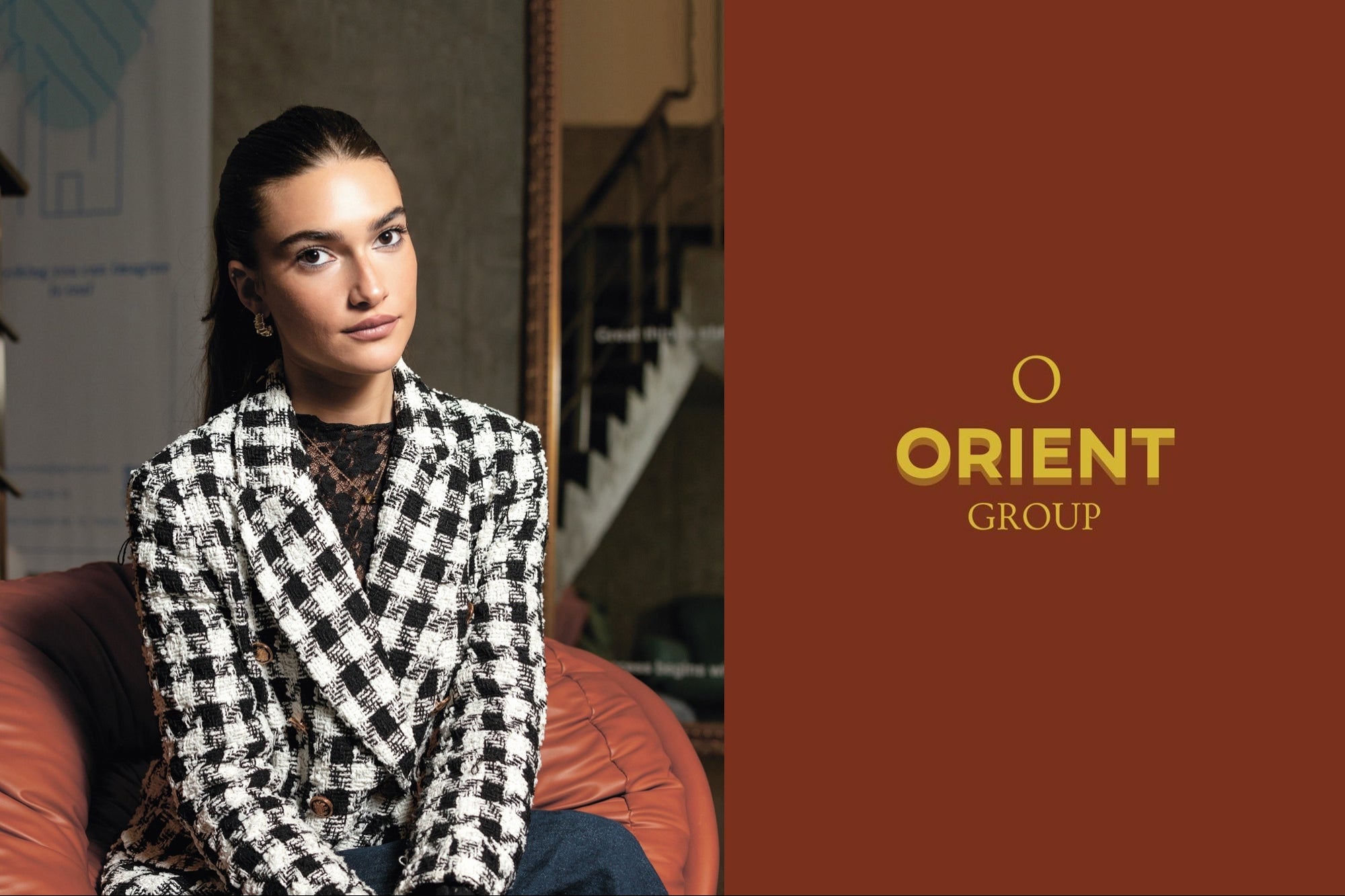Leo Institute and Teams with Unbelievable Results Finnish pharmaceutical company FinVector gets FDA(Food and Drug Administration) authorization after 25 years of R & D phase for their newly invented bladder cancer treatment medication with the support of Leo Institute's Georgian team
Opinions expressed by Entrepreneur contributors are their own.
You're reading Entrepreneur Georgia, an international franchise of Entrepreneur Media.

The list of organizations that have been transformed with the help of Leo Methodology, among them Shell, NASA, Boeing, and VISA, keeps on growing, with ever more Georgian companies joining them. The co-author of the methodology, Sami Cohen, together with Anna Cohen, founded the Leo Institute in Georgia in 2019. With the help of the Leo Institute's Georgian team, a Finnish pharmaceutical company gets FDA approval after 25 years' of R&D.
Synergy effect - 1+1>2, being the interaction of two particles giving the combined greater effect than would have been achieved by adding them individually, is sometimes harder to attain with people. So what might hinder the synergy between people?
Leo Institute team's interest and expertise is the human being, what one can achieve as an individual, what one can achieve with others in a team, and what prevents a person from realizing their potential. When it comes to working in a team, Leo Institute support teams to shift from an individualistic mindset into a trusting team mindset, ultimately enabling them to make the impossible become possible. "We guide leaders and their teams in their personal and team mastery, allowing each team member to gain self-awareness and team-awareness, and reconnect with their inner potential."

*Exponential growth with Leo Institute
In this process, people begin to see their personal blind spots. What was previously unconscious, unproductive thoughts and behavior, became visible from different prisms, including the most "selfish" prism. During this process you see how useless and damaging your specific behaviors are to both yourself and the team.
The moment of realization is when the inner transformation begins - you break out of the set of behaviors and thoughts that are fixed in your character and habits, and you start doing something new that leads you to your goals.
Couple Sami Cohen and Claire Nuer, on their path of personal transformation and discovery, created a unique methodology for personal development. In 1982, Claire's health condition made the couple to put aside the minutiae of everyday life and start looking for something more substantial. Bringing their experiences and discoveries into their seminars, Sami and Claire have shared with thousands of people how they can change their mental models and become the creators of their own lives: lives full of possibilities, connections and joy.
In 1993, MIT Sloan School of Management lecturer Peter Senge met Sami Cohen and Claire Nuer. Their meeting was the kick off moment of introducing the Leo Methodology to the business world, offering an opportunity for organizations to create a culture of great teamwork, high employee engagement, and leadership that empowers others to develop new possibilities.

Among the organizations that have been transformed with the help of Leo Methodology are Shell, NASA, Boeing, and VISA. Since 2019, this list has been growing with Georgian companies, as the co-author of the methodology, Sami Cohen, together with Anna Cohen, decided to establish the Leo Institute in Georgia. Since then, Leo Institute in Georgia has helped around 500 people - leaders, couples, and teams - to change how they work, communicate, set and achieve goals, and how they live their lives moment by moment.
Over the years, Leo Institute has worked in two main directions: Leo for Individuals and Leo for Business.
When working with teams, Leo Institute creates a tailor made program for each team that includes:
• Leadership;
• Leadership alignment;
• Working together culture;
• Employee engagement;
• Feedback culture;
• Goal alignment;
• Merging diverse corporate cultures.
"Company leaders have the illusion that they can influence business outcomes without changes in the human dimension. The organization has result A because the team is in an A state. Often, leaders know what the desired outcome (B) is, but don't know what state B is or how to get there. This is the subject of Leo Institute research. Teams come to us with a vision, a desired B result, and we often recommend making this B big enough that motivate them to start changing the status quo. In other words, the organization's success is the result of individual and collective behavior, and the state is what is behind these behaviors", - notes Giorgi Burchuladze, CEO of Leo Institute.
Our process is similar to Michelangelo's approach. He said that the idea of a sculpture already exists in the hunk of stone; the sculptor is there to free the statue from the superfluous parts of the stone. Like those sculptures, our unique skills and abilities are hidden under the many layers of behaviors, perceptions, and thoughts we carry with us daily. It is the same in a team: each team has its own unique capabilities, but there are counterproductive behaviors that, the bigger they are, the more influential the negative effect it is. Consequently, the quantity of 'stone' needing to be removed increases and becomes more complex as time passes. In the case of a statue, chiseling excess stone away is a one-time act, for individuals it is a continuous process. With teams, this process is even more complex. The Leo Institute coaches believe trust is the key to reversing this complexity.
"Trust is an internal state and has nothing to do with the environment. This was a great discovery for me, which I experienced most clearly for the first time in the Leo team," - explains Tina Kukhianidze, head of the business direction of Leo Institute.
"How do you explain trust? I often 'test' the other person first by observing their behavior, and if they act with what I consider to be desirable behavior, they 'pass the test' and are added to my list of trusted people. Similar expectations toward ourselves and others are a kind of framework that we set unconsciously, and automatically follow. The fear of losing 'trust' and being judged is often the primary motivation behind our behaviors. It limits us from growing, trying new things, and learning more about ourselves and our abilities.
"Trusting the team means I'm not attached to my vision of how others should behave," she adds. "I believe in them and their abilities. We believe that trust is an internal state and does not need to be proven to others. On the contrary, it is letting go of expectations and control of other people's behavior. When teamwork is based on trust, the work environment is safe, and the process is inspiring and creative. Energy is spent not on dealing with tensions but on creation and growth. In a team, there is usually a high culture of feedback and accountability to one's word, each other, and shared goals."
"Sounds utopic, right? Yet, the process of learning is full of discoveries, transformation, improved results, and most importantly, a feeling of inner peace", she says.
Various studies confirm the link between trust and productivity. It seems obvious, but are you ready to see what it looks like in numbers?
Read the story of Shell and the transformation of its team by the support of Leo Methodology.

SHELL's Team Growth with Leo Institute
Shell URSA is the largest deep-water offshore drilling rig that Shell Oil Company has built. It is a structure of forty-eight stories high and it can drill more than three thousand feet below the ocean's surface. It cost $1.45 billion to build in 1997, equivalent to roughly $5.35 billion today.
"The Leo Methodology created trusting team Shell Ursa - and the results of this process were incredible," Simon Sinek writes in his book Infinite Game.
The large and expensive project Shell Ursa was a new challenge and risk for the company's operation. They hired Rick Fox as the superintendent for the project. His job was one of the most dangerous in the world - one wrong move, and someone could be died. Fox knew this, so safety was his number one priority.

Claire Nuer, co-author of the "Leo Methodology", learned about the Shell Ursa project and shared her ideas with Rick Fox on how to overcome challenges he faced on a daily basis. Fox mostly talked about technical challenges, but Nuer suggested that for the Shell Ursa crew to be safe and successful, his team had to learn to express their feelings before each new challenge.
Fox tried Claire Nuer's methodology on himself and was so impressed that he wanted others to try it too. He hired a qualified team from Northern California to test the method on his rough-and-tumble crew. Fox was sure his team wouldn't take it seriously, but he figured any ridicule he'd have to endure would be short-lived compared to the benefits they would get.
The team's coaching began with Ursa crew members sitting in a circle for hours each day and talking about their childhood memories and personal relationships. They not only spoke, but also listened to each other. One crew member asked the group, "If you could change one thing about me, what would it be?" "You don't listen to others," "You talk too much," they told him, and he realized they needed to be listened by him.
Through these exercises, the crew members got to know each other better. Because of the strict atmosphere, like everyone else, they had had doubts, fears, and feelings of insecurity which they hid. However, with the guidance and support of Claire Nuer, Shell Ursa created a team whose members felt psychologically safe with each other, which helped improve communication. As a result, the Shell Ursa project has one of the best safety records in the industry. Since Nuer's trust-building techniques were implemented across the company, on-the-job accidents have reduced by 84%.
"When we work in a trusting team, we freely express our vulnerabilities. We can admit that we have made a mistake or missed something; we can take responsibility for our actions and ask for assistance. When we are in a trusting team, we are sure that the leader and colleagues are ready to help us," Simon Sinek writes in his book Infinite Game.
The operational rate of the oil platform was 95%. And Shell Ursa, with the support of Leo Methodology, raised this result to 99%. Their production was 43% higher than the industry standard. Shell Ursa then exceeded its production targets, producing 14 million barrels of oil. It can clearly be seen in this case that an effective team which entirely relies on the principles of trust is vital to achieving better results.
Leo Institute's diverse experience spans many industries. Each industry has distinct challenges and requires a specific approach. In addition to the oil business, Leo Institute also actively supports pharmaceutical companies.
Entrepreneur will now offer you another success story that came about thanks to Leo Methodology.
Leo Methodology for the Finvector Team
"We faced a big challenge; we had to apply for marketing authorization and were behind the schedule. We realized that we needed help. This was the main reason of starting work with the Leo Institute," explains Stefan Weber, QA Manager at Finvector.
In November 2021, the Leo Institute team was invited to Finland by biopharmaceutical company FinVector, which produces viral-based gene therapy products. The company had spent about 25 years in the research and development phase of bladder cancer medicine, and now, their goal was to get FDA (Food and Drug Administration) authorization.
The company was going experiencing difficulties. Obtaining FDA authorization takes a lot procedures and the involvement of almost all departments. The fact that this was their second attempt to lodge an application, and the company was anticipating some market competition, added to the stress and hindered the employees' productive work.

"Under tight deadlines, facing tough challenges, and in a stressful environment, management often centralizes processes, meaning that the decision-making is done by top management, while middle management is left to give the instructions and oversee the work done by the rest of the employees. This approach is effective in the short term, but weakens middle management by limiting their engagement in company operations in the long run. Taking responsibility for decisions and actions becomes difficult because the perception of their role in the company and contribution is diminished. As more people become involved in the decision-making process, the higher the creativity and overall efficiency of the company is, so contributing to its success," Giorgi Burchuladze explains.
To achieve its goal, FinVector decided that their top and middle management level needed to work as a team. Leo Institute three-level program helped them to achieve this goal, which lasted 18 days and included seminars, workshops, and coaching for top and middle managers.
Before the seminars began, an interview was conducted with the organization's management to learn more about the company dynamics. It immediately became obvious what had and hadn't been done toward achieving their goals. Various challenges were identified within the team, among them being behind the schedule, poor information flow between departments, and a dramatic increase in the number of employees.
Considering company`s challenge, Leo Institute created a tailor-made program for the team, consisting of three stages: InsideMySelf, InsideMyTeam, and InsideMyOrganization.
InsideMySelf An understanding of how each team member operates individually, and how their actions may hinder the productivity and success of the team as a whole. Discovering of what they create by these actions and how they can be changed by the changing the mindset.
InsideMyTeam Examining team dynamics and identifying the challenges in order to develop cohesion and alignment within the team. The primary role of individual's mind is to keep us safe from the danger, including psychological threats – this is often which puts self-interest above the team's. Consequently, energy is directed toward personal interests rather than serving a common goal.
InsideMyOrganization - If teams are formed, it does not mean that the organization can function as one entity. At this stage each team presents the project, with its difficulties and challenges, and conduct the negotiation with other teams how to get what they need to do their job. Sometimes one team needs something from another team, this second team may need something from third team. This brings the company together and align a streamline of work together.
After the completion of the first part of the program, Leo Institute offered middle managers a follow-up session, which included several group coaching meetings. With the help of these activities, the managers clearly saw what and how to take responsibility and what to delegate to the next-level leaders and the team. Finally, they could implement these changes in the company within their teams.

"We conducted group coaching with middle managers, which is called a Follow-Up session and includes several meetings. The meetings were held once a week during their weekly meetings, and at them we discussed what was needed (or wasn't needed), what worked and what didn't. Along the way, we improved the results. First of all, we saw the need of structure to follow and preparation for meetings, which was the responsibility of each manager. They contributed to creating the meetings the way needed to work effectively. Each of them was involved and knew what was needed and what was required from each other," Anna Cohen explains.
"Most importantly, they decided to appoint a person who would follow up the decision-making process, record what was agreed upon and who was responsible for its implementation, when it was to be done by, and, in addition, from whom anything would be needed to help in the implementation of a particular project. All this increased the effectiveness of the meeting. The feeling of responsibility increased, and it became clear what should be forwarded to the upper-level managers and what decisions they should make themselves. This process strengthened them. They understood that they had to do the same in their teams. As a result, top managers freed more time when middle-managers started taking responsibility on decision-making and what was forwarded to them were really strategic issues.
"Overall, the process was really nice, and it helped managers to see the space of their responsibilities. They understood what was needed for the teams and in regard to the leaders."
After six months, the Leo Institute team was invited again to Finland to hold another seminar. Their team was amazed to see the same people in entirely different working conditions, now knowing what they were doing and why. Most importantly, they were enjoying their work and were fully engaged in the work process.
In December 2022, six months after the completion of the last part of the Leo Institute program, FinVector got FDA authorization.
FinVector management lists the results that were achieved as a result of working with Leo Institute:
• Collaborative work;
• Getting to know each other better, which helped to improve the company culture and working environment;
• Starting to change the leaders' mindset;
• Completing projects before the deadlines;
• Increased level of optimism in the company;
• Increased confidence of employees considering the complex challenges they face.
The important thing is that before the start of program only 2 out of 32 employees believed that they would achieve the goal, but after the end of the program 30 of them.
"When we decided to do the seminars, we had a very stressful period: we had a big challenge ahead for the following months and we didn't think it was the right time to do this type of work. We had a lot of work to do and we needed to concentrate on. But it was the right time and the right decision, because we saw how confidently the employees came to face these challenges. Everything went smoothly; moreover, we completed the work before the deadline. The work that Leo Institute has done is something that is lasting and stays with you. It's not something you can easily forget," explains Giuseppe Carloni, Member of the Board and Chair of the Quality and Compliance Committee at FinVector
What is the role of a leader in creating a trusting team?
Experts mention that a key component in a leader's ability to be effective is the degree of trust their subordinates have in them.
There are generally two types of CEO: one who uses various programs to unite the team, and the other, who believes that such activities are ineffective.
"Most CEOs that invest in team building look at it as an incentive to please their employees, not as a tool to improve their bottom line.
I must say in their defense that besides Peter Senge's training I have not yet seen training that transforms team dynamics. It doesn't mean it doesn't exist. It is just very rare.
," says Sami Cohen.
Now let's discuss the case of a Georgian company where Leo Methodology helps to have exponential growth.

PMCG's Growth with Leo Institute
One of the teams that Leo Institute worked with in Georgia is the consulting company PMCG. The ambitious goal of the management team was to grow the company ten-fold within five years.
PMCG was founded in 2007, and since then has grown steadily, always observant of the great opportunities in the market.
In 2015-2016, PMCG prepared a 5-year plan according to the company's vision to grow significantly. However, in 2018-2019, the company's growth slowed due to lower sales and revenue streams. At that point, it seemed impossible to achieve the set objectives.
From the start, PMCG actively used different activities for team-building but quickly realized that as a team grows, this approach couldn't provide the growth they wanted. That's why they decided to start working with Leo Institute. The company's goal was to establish an internationally competitive and leading company in the region in the consulting market. To achieve this goal, each department needed to increase the sales volume and revenues ten-fold over the following five years.
According to the General Director of PMCG Lekso Aleksishvili, the management team had the theoretical knowledge and recognized the weaknesses that were visible, but not the human factors that hindered the growth of the company.
"To use an analogy from football, everyone knows that the team's victory depends on that last goal, but at the crucial moment, you might not pass the ball for another player to make the shot. This can happen for any number of reasons: you might feel that you can do it better, you need to prove yourself, you might think the other team players are not worthy or not strong enough to achieve the goal, etc. As a result, the team fails to get the desired result", says Aleksishvili.

In its second year of collaboration, the company's management team of seven people is participating in the "InsideMyLeadership" program with the Leo Institute. As a result, in terms of corporate growth, the company had 40% year-on-year growth in 2022, and sales increased by 75%. Their goal is to maintain this growth for the next five years and have a sustainability so that the quality does not deteriorate with the company's rapid growth.

"Overall, I believe that the program is beneficial for individual growth and the mutual cooperation of leaders. I see changes in how they approach challenges, give and receive feedback, and how the process is much more collegial as a result," Aleksishvili explains.
According to Aleksishvili, his main challenge as a leader in this process was recognizing the barriers that prevented his team from succeeding.
"For 30 years, I have worked with businesses of various size in more than ten countries. I have observed a common leadership misconception – a lack of belief in human factors and that employee engagement is crucial for the company's success. Each of our consecutive project proves that the human factor is critical in getting good versus incredible results in the company," Sami Cohen notes.
He recalls the experience of working with Maxim – CEO of large organisation, who believed that his employees were an asset and liked to repeatedly highlight this when speaking with them.
"They (employees) create a company. For two companies with the same resources, people make all the difference. They are the main creators of tangible results," the company's CEO explains.
Despite this fact his HR was in charge of employee empowerment. During the conversation, Cohen reassured Maxime that focusing on employee and human interaction should be a priority for the leadership team, while the HR team is there to assist with the right tools and implementation.
"I admit that my first reaction was to delegate this process to the HR department. But now I know what employee empowerment culture is. My company's profits are my responsibility, not HR's. I remember our conversation, where you mentioned that 75% of employee motivation is related to how they are directly managed. As such, significant improvements can be made by increasing the leadership skills of managers," Maxim told Cohen.
Maxim and Cohen worked for exactly six years on the company culture, making it the most profitable in the industry. Cohen recalls seeing the confidence and joy on the faces of the managers every time he visited the company. They were proud to work for an organization that appreciated human dimension and ascribed growth and solid results to this program




